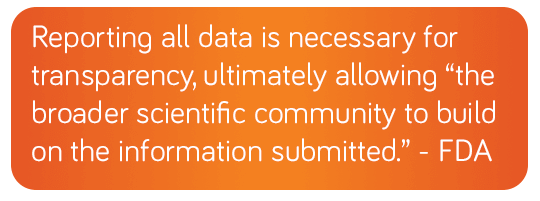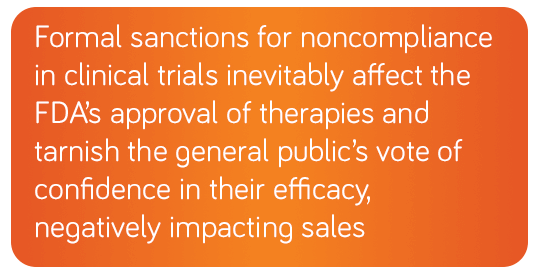Transparency is the cornerstone of clinical trials and is vital to enabling genuine advancement of safe and effective medical treatments. Whether an academic institution, an individual, a corporation, a government entity or a combination of these conducts the research, federal law requires that sponsors register the trial on ClinicalTrials.gov within 21 days of the first human subject's enrollment. In addition to reporting the trial itself, sponsors must submit results from the trial—-positive or negative, expected or unexpected—no later than one year after the study's completion, unless the sponsor is granted a deadline extension.
Clinical Trials.gov is a database of clinical trial data that is jointly managed by the National Institutes of Health (NIH) and the National Library of Medicine. However, the burden of determining compliance with reporting to the database lies with the Food and Drug Administration (FDA). The FDA alone has the duty and responsibility to determine legal compliance for clinical trials and act on reports of non-compliance.
Section 303(f)(3) of the Federal Food, Drug, and Cosmetic Act (FD&C Act) "authorizes the FDA to assess civil money penalties against responsible parties... who violate applicable FD&C Act prohibitions relating to requirements under section 402(j) of the Public Health Service Act (42 U.S.C. 282(j)). including its implementing regulations in 42 CFR Part 11, to submit registration and/or results information to the ClinicalTrials.gov data bank and/or certain certifications to FDA." Unfortunately, these FDA guidance documents issued in August 2020 do not establish legally enforceable responsibilities, rather, they establish guidance and, per the FDA, should be viewed only as recommendations, unless otherwise specified.

